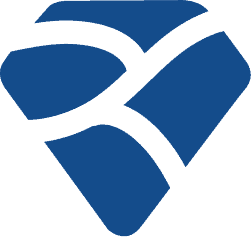30+ Common Google Interview Questions was originally published on Forage.

Google’s interview questions are notoriously difficult — getting hired by one of the biggest tech companies in the world isn’t easy. But if you’ve reached the interview stage, know you’re already ahead of most people who’ve applied (especially since Google only hires about 0.2% of its applicants!). To help you prepare, we’ve pulled together some of the most common questions in Google interviews.
In this guide, we’ll go over:
- General Google Interview Questions
- Role-Specific Interview Questions at Google
- Tips for Preparing for Google Interviews
General Google Interview Questions
Many common questions asked in Google interviews focus on how you interact with Google’s products. These questions partially serve to see how familiar you are with Google and its history, but the interviewer also wants to understand how passionate you are about the company. Some typical questions include:
- Why Google?
- What is your favorite Google product? Why? How would you improve it?
- How does Google stand out from its competitors?
- What are some other sites you visit frequently? Why do you like them?
- Is there a Google product that you don’t like to use? Why?
- If you don’t get hired at Google, what other companies would you be happy working for?
- In your opinion, why is the Google homepage mostly blank space?
Googleyness and Leadership Questions
Historically, Google used tricky brain teasers to test candidates’ ability to tackle challenges and work through complex problems. However, Google replaced those with behavioral and situational questions called “Googleyness and Leadership” (G&L) questions.
Non-technical interviews are usually filled with G&L questions. But even software engineers and other technical positions need to answer a few of these hypothetical and behavioral questions.
In G&L interviews, the interviewers are looking for specific skills, such as time management, communication, initiative, and problem-solving. These interviews feature questions like, “tell me about a time when…” or “imagine that…,” which allow you to put yourself in the shoes of a specific role at Google and explain how you would act in a given situation.

Forage Find
Use the STAR method to map out your answers to behavioral questions: explain the Situation, Task, Action, and Result!
Some G&L questions include:
- Tell me about a time you had to lead or influence your coworkers.
- Let’s say you’re working on a major project with a team. Several issues arise the day before it’s due, leading to your teammates sending you competing requests, each marked as urgent. How would you respond to their requests?
- Tell me about a time you had a conflict with a manager. How did you resolve the problem?
- Imagine you are managing a team of five people. Two teammates often don’t contribute to the team’s efforts, but when they do, their work is of high quality. How would you handle this situation?
- Tell me about a time you set a challenging goal for yourself and failed to meet it. What did you do, and how did you handle it?
A common mistake Google recruiters see is candidates not asking for clarification or further information on some of the more vague behavioral questions. Remember that hypothetical and situational questions are a little vague by design, and asking clarifying questions allows the interviewer to see your thought process.
“Be confident in yourself and your capabilities,” advises Eaven Portillo, co-founder and COO at Sortium. “You don’t have to know everything, just the willingness to learn (and actually follow through) goes a long way.”
Role-Specific Interview Questions at Google
Technical and Coding Interviews
Coding Questions
If you’re applying for a highly-technical role at Google, you’ll likely undergo several coding interviews. Each interview lasts about 45 minutes, and you’ll use the majority of the time actually coding. Typically, you’ll receive one problem, and in the given time, you need to analyze the problem, produce working coding, and walk the interviewer through your thought process clearly.
>>MORE: Check out some of the most commonly asked coding interview questions.
The types of questions Google interviewers ask are usually similar to medium-difficulty LeetCode problems, such as:
- Assume you are climbing a staircase, and reaching the top takes “n” steps. How many distinct ways can you climb to the top by climbing either 1 or 2 steps each time?
- If you have a given 2D binary grid wherein “1” represents land and “0” represents water, write a code to return how many islands exist.
- A conveyor belt must be loaded with packages to be shipped out within a given number of days. The number of the package is the same as its weight. Each day, the conveyor belt is loaded with packages in order of weight. The conveyor belt cannot hold more weight than the maximum weight capacity of the ship. What is the lowest weight capacity for the shipping boat that will be able to hold all the packages on the conveyor belt within the given number of days?
Sometimes, when approaching problems like this, you’ll think of multiple possible solutions. In that case, mention your ideas to the interviewer and explain why you think one solution is better than the others. Of course, you want to find the optimal solution, but you also want to show the interviewer that you’ve thought deeply about the problem.
Crush the coding test
Prep for your next assessment with our free Girls Who Code Technical Interview Prep course.
Other Technical Questions
Besides questions focusing on data structures, algorithms, or dynamic programming, your technical interview may include questions about computer science concepts.
“Don’t be afraid to get a lil’ nerdy and passionate,” says Portillo. “Interviews are not a doctor’s visit.”
The types of technical but non-coding questions Google might ask include:
- Explain what congestion control is in transmission control protocol (TCP).
- What is the difference between programming and scripting?
- What is agile software development?
- How would you explain API to a child?
- Describe a web architecture and its components.
>>MORE: Learn some technical interview questions common to all careers.
Interviews for certain technical positions may also include more tailored interview questions. For example:
If you’re applying for a role in data analytics, you may see questions such as:
- How do you work to ensure data is free from bias?
- Can you explain why exploratory data analysis is an important step to take before implementing any machine learning models?
Applicants for UX (user experience) positions may get questions like:
- Explain the difference between responsive web design and native mobile application development.
- Can you tell me how user personas influence the UX design process?
Cybersecurity candidates could have interview questions such as:
- What can happen if there’s a cyberattack on a computer network?
- How are privacy and security related?
Non-Technical Interviews
Going into a non-technical interview at Google, you’ll likely see more Googleyness-type questions that give you a chance to highlight your problem-solving and analytical thinking skills. Additionally, the interviewer will ask knowledge-specific questions for the department you’re trying to work in.
Business strategy and finance applicants may have questions like:
- Describe your experience using Excel and SQL for financial analysis.
- How would you explain the importance of financial reports to someone who doesn’t work in finance?
- What changes would you make to Google’s business model, given the opportunity?
- What areas of Google do you think are underinvested? Why?
Candidates interviewing for e-commerce and marketing roles could have questions like:
- How have your experiences using social media made you better at advertising on social platforms?
- What programs do you use to improve your keyword research in search engine optimization (SEO) and search engine marketing (SEM)?
- How do you think the digital marketing landscape will change in the next five to ten years?
>>MORE: Learn how to answer common marketing analyst interview questions.
Project management interviewees might encounter questions like:
- How do you determine when you’ve finished a project? What metrics or standards do you use?
- A team member suggests using their relative’s company for outsourcing part of the product delivery process. How would you handle this situation?
>>MORE: Check out the types of questions typically asked in project manager interviews.
Tips for Preparing for Google Interviews
Talk to Your Recruiter Regularly
If you have easy access to your recruiter, leverage that! Your recruiter can give you a lot of information and details on what to expect in your interview. They can also provide support and proprietary resources to help you prepare.
Prepare Questions for the Interviewer
Beyond asking for clarification on G&L or technical questions, asking the interviewer questions at the end of your meeting can show them you’re proactive and excited about the role. While the interviewer wants to see if you’re the right fit for the role, you also want to check if the job fits you! Asking questions about the daily responsibilities and opportunities for advancement can help you determine if that role at Google is a good fit.
>>MORE: See more questions you should ask in interviews.
Get Personal With Your Responses
When conducting interviews, Portillo says, “I’m looking for a story, a memory, something that sparks that twinkle in their eye of a moment in their past when they were happy or passionate.”
Being able to answer a coding or knowledge-based question is great, but connecting with the interviewer and showing off your passion and excitement for the role can boost your chances of success.
You want to be able to “talk to the person as if you’ve known them your whole life,” adds Portillo. So, practice your responses and make them personal to you and your experiences.
Explore Your Resources
Besides the resources you can get through your recruiter, the internet has nearly unlimited books and websites that can help you prepare to answer some of the more challenging questions your Google interviewer may ask. For example, “Cracking the Coding Interview,” by Gayle Laakmann McDowell, is a book new hires often cite as a core resource they used to prepare.
If you’re not preparing for a technical interview you still have plenty of options. Going through mock interviews with friends and family and rehearsing your responses can help.
Additionally, you can learn how to best prepare for your interview with the National Urban League’s Career Readiness job simulation.
Image credit: IgorTishenko/ Depositphotos.com
The post 30+ Common Google Interview Questions appeared first on Forage.

